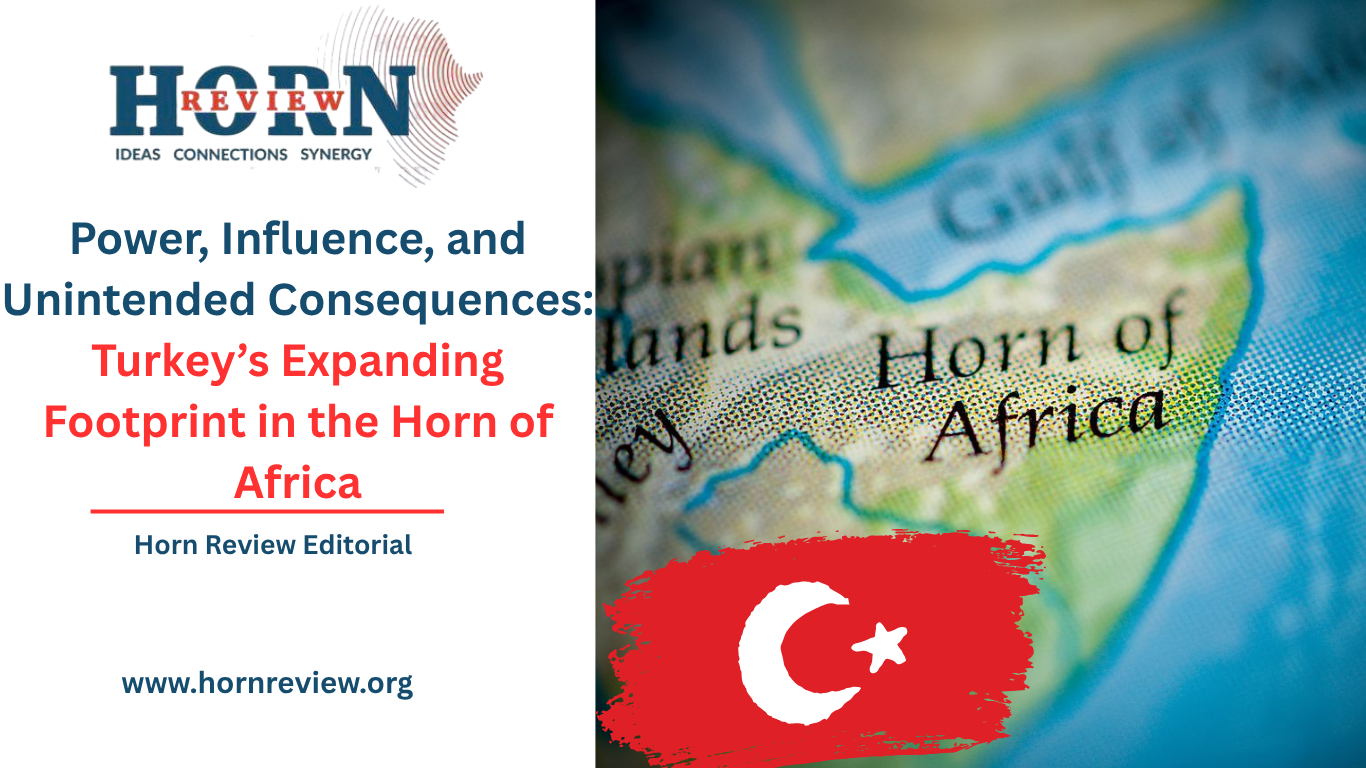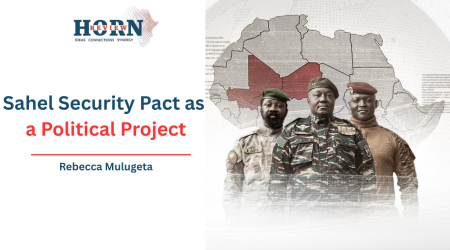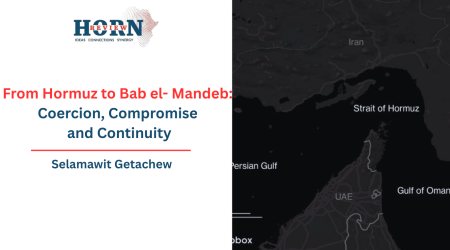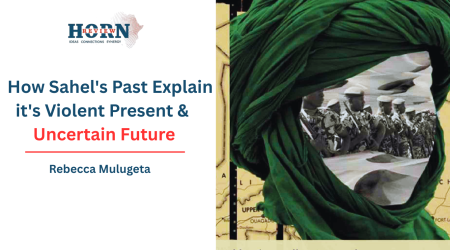
9
Nov
Power, Influence, and Unintended Consequences: Turkey’s Expanding Footprint in the Horn of Africa
Turkey has quietly but decisively deepened its engagement across the Horn of Africa. What began as a development-oriented outreach has evolved into a multifaceted presence that fuses economic investment and military cooperation. This shift reflects both Ankara’s aspiration to act as an influential middle power and the Horn’s strategic importance in a multipolar world where old alliances are being redefined and new patrons are competing for influence.
A recent analysis by Sinan Ciddi and William Doran, published in Foreign Policy on October 28 2025, observes that alongside its diplomatic surge, Turkey has also become one of Africa’s fastest-growing arms suppliers. Exports from Baykar Technology – Turkey’s leading drone manufacturer – accounted for more than a quarter of the country’s total arms sales in 2024, roughly $1.8 billion. Eighteen African states now operate Turkish-made drones, underscoring how Ankara’s defence industry has evolved from domestic innovation into a key instrument of foreign policy. Yet, as the authors caution, this trend risks fuelling instability in fragile regions unless accompanied by strict oversight and transparent end-use controls.
Nowhere are these contradictions clearer than in the Horn of Africa. In Somalia, Turkey’s engagement runs deep. Since establishing its embassy in Mogadishu in 2011, Ankara has poured investment into education, health care, and infrastructure while also building its largest overseas military base. Turkish trainers have worked with thousands of Somali troops, helping to rebuild state security institutions. For some, this partnership embodies solidarity and pragmatic cooperation; for others, it raises concerns about dependency and the gradual outsourcing of national security to a foreign power. The question is no longer whether Turkey’s presence is beneficial, but whether Somali sovereignty can keep pace with the scale of Turkish involvement.
Sudan presents a starker example of the risks that accompany this model. As the country has slid deeper into civil conflict, a growing body of evidence – including flight records and commercial documents – indicates that Baykar supplied the Sudanese Armed Forces with at least $120 million in drones and munitions routed through sanctioned entities. While Turkey is hardly the only external player operating in Sudan’s fragmented war economy, these links highlight how new suppliers have found opportunities in regulatory grey zones left by older powers. The reputational and legal exposure for Ankara’s defence sector is significant, but the humanitarian cost is greater still: both Sudanese factions continue to acquire sophisticated weaponry despite a UN arms embargo, perpetuating one of the world’s deadliest urban wars.
Across the Horn, the proliferation of drone technology has transformed security dynamics in ways still poorly understood. For states confronting insurgencies or maritime piracy, Turkish drones offer relatively affordable surveillance and strike capability. Yet the same systems have also been used in domestic power struggles and counter-insurgency operations where civilian harm is poorly monitored. A 2025 Guardian investigation estimated nearly 1,000 civilian deaths from drone strikes across Africa over three years, many involving platforms manufactured in Turkey, China, and Iran. The issue, therefore, is not technological capacity but political accountability. In fragile states, precision weaponry often amplifies impunity rather than curbing it.
Turkey’s broader Africa policy is driven by a desire to demonstrate that global order need not revolve around the traditional great powers. President Recep Tayyip Erdoğan’s phrase “the world is bigger than five” captures this ambition. Yet the practice of this vision in the Horn of Africa has at times contradicted its rhetoric. Partnerships framed as horizontal and respectful increasingly carry vertical implications – particularly when tied to arms sales and security assistance. The February 2025 defence pact between Turkey and Somalia, for example, commits Ankara to arm, train, and modernise Somali forces for a decade, while also granting access to maritime zones rich in hydrocarbons. Such arrangements blur the lines between capacity-building and strategic entrenchment, binding security cooperation to long-term economic interests.
These developments unfold amid a crowded geopolitical field. The Gulf states, Russia, and China are all vying for footholds in the Red Sea corridor, while Western powers recalibrate their presence. In this context, Turkey offers itself as a middle-way partner – neither Western nor Eastern, but Islamic, pragmatic, and self-reliant. This framing resonates with governments wary of conditional aid, yet it also allows Ankara to pursue influence with minimal scrutiny. The Horn thus becomes both a testing ground for Turkey’s global ambitions and a mirror reflecting Africa’s own struggle to balance partnership with autonomy.
Ultimately, Turkey’s expanding role in the Horn of Africa reveals a dual reality. Its investments in ports, hospitals, and schools contribute to reconstruction and public goodwill. But the simultaneous export of military hardware into volatile environments carries undeniable risks. The same infrastructure that hosts training programmes can anchor long-term dependencies, and the same drones that secure borders can deepen political divides. The outcome depends less on Turkish intent than on the region’s ability to regulate and negotiate its partnerships from a position of agency.
As Foreign Policy notes, Ankara’s growing reach has made it a pivotal – if not controversial – player in Africa’s evolving security landscape. Whether this presence stabilises or destabilises the Horn will hinge on transparency, restraint, and respect for regional norms. Turkey’s engagement is not merely a story of evolution; it is a story of consequence, reminding both Ankara and its partners that influence without accountability risks turning partnership into peril.
Citation Note:
Portions of this article reference Sinan Ciddi and William Doran, “How Turkish Arms End Up in African Conflicts,” Foreign Policy, Oct. 28 2025.
By Horn Review Editorial










